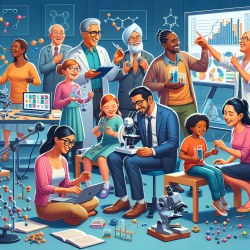Introduction
In the realm of speech-language pathology, data-driven decisions are crucial for creating effective therapy plans. At TinyEYE, we provide online therapy services to schools, aiming to improve outcomes for children. While it might seem unrelated, the research article titled "Regulating surplus: charity and the legal geographies of food waste enclosure" offers valuable insights that can inspire speech therapy practitioners to enhance their skills and approaches.
Understanding the Research
The research by Joshua D. Lohnes explores the dynamics of food waste and its revaluation within the charitable food networks in the United States. It highlights how food waste is repurposed as hunger relief, driven by a complex interplay of legal, economic, and moral values. This research emphasizes the importance of understanding the underlying systems and frameworks that govern processes, which can be applied to speech therapy as well.
Applying Insights to Speech Therapy
Here are some ways speech therapy practitioners can draw parallels from this research to improve their practice:
- Systematic Approach: Just as the food waste research delves into the systemic issues, speech therapists should adopt a systematic approach to understand the root causes of communication disorders. This involves thorough assessments and data collection to inform therapy plans.
- Collaboration and Networks: The research underscores the role of networks in managing food waste. Similarly, speech therapists can benefit from collaborating with educators, parents, and other professionals to create a supportive network for children.
- Value Reassessment: The revaluation of food waste as a resource for hunger relief can inspire therapists to reassess and revalue the tools and methods they use, ensuring they are tailored to each child's unique needs.
Encouraging Further Research
For practitioners interested in enhancing their skills, further research into systemic approaches and interdisciplinary collaboration can be invaluable. By staying informed about the latest studies and findings, therapists can continuously refine their strategies to better serve children.
Conclusion
Incorporating insights from diverse fields, such as the legal and economic frameworks of food waste management, can enrich the practice of speech therapy. By adopting a data-driven and collaborative approach, practitioners can create more effective and personalized therapy plans for children.
To read the original research paper, please follow this link: Regulating surplus: charity and the legal geographies of food waste enclosure.










